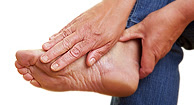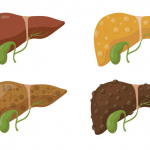We know from population studies that obesity is a risk factor for the development of a long list of medical problems, including heart disease. Interestingly, a number of research studies suggest that obesity actually has a protective effect in patients who already have established heart disease, and a recent study shows that this protective effect includes patients with type 2 diabetes and heart disease.
The study by Doehner and colleagues, which is an analysis of data from the PROactive trial (a study of a diabetes medication called pioglitazone, vs placebo), they found that over a follow up period of almost 3 years, patients with type 2 diabetes and heart disease had the lowest mortality rates if their body mass index (BMI) at the start of the study was between 30-35. (A BMI of 30 or greater is considered as ‘obese’. You can calculate your own BMI in the right hand column of www.drsue.ca .)
They also found that weight loss was a predictor of mortality, and that weight gain was NOT associated with increased death rates. In patients taking pioglitazone, a medication that is known to cause weight gain, those who did gain weight on pioglitazone had improved survival compared to those who did not gain weight.
This phenomenon, which has also been shown in several studies of nondiabetics, is what we refer to as the Obesity Paradox – that people with cardiovascular disease seem to be protected by higher body weights. How is this possible?
The theory is that people who are sick are often losing weight, because they have lost their energy or appetite to eat, or because their illness causes such a high calorie burn that they can’t keep up with food intake (this is seen in cancer patients as well). Thus, the people who gained weight or didn’t lose weight in the study were likely more ‘well’ in general, whereas the people who were thin or losing weight were likely to be sicker with their heart disease, and therefore had a higher rate of death during the study period. Perhaps it could also be a better ‘starting point’ to have extra fat tissue on board before a person becomes sick – thereby giving that person more energy stores to draw from while overcoming a period of illness.
All in all, this information reminds us that fat tissue isn’t all bad – it actually evolved over millions of years to help us survive periods of famine, and probably periods of illness as well.
Dr Sue Pedersen www.drsue.ca © 2013 drsuetalks@gmail.com
Follow me on Twitter for daily tips! @drsuepedersen












